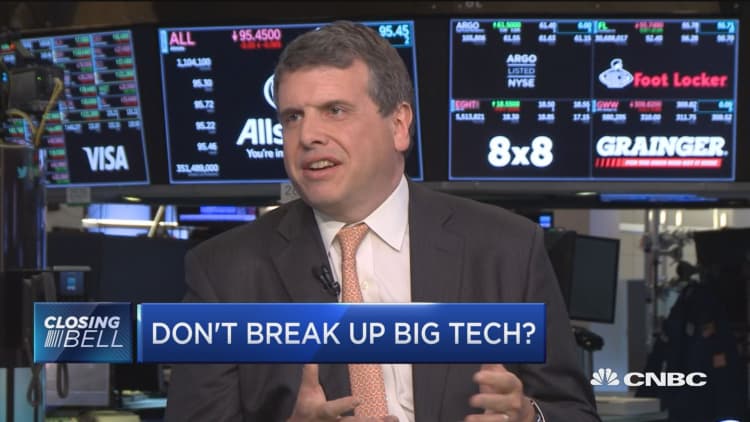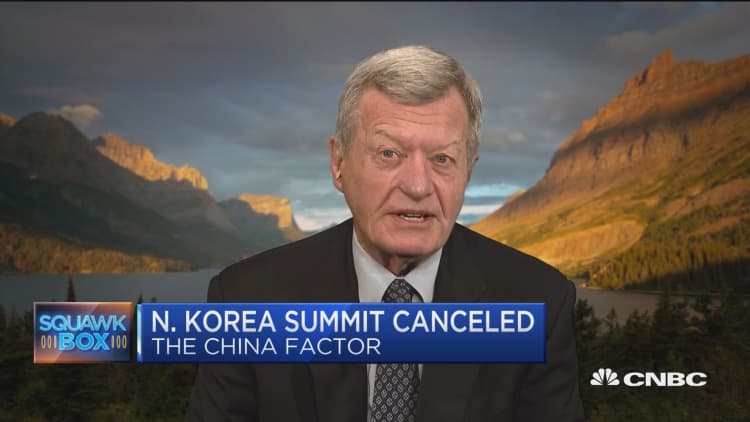Silicon Valley investors are worried that China's tech sector will eat their lunch.
The idea came up at a Bay Area debate earlier this week when Sequoia Capital venture partner Mike Vernal posited that China will soon overtake the U.S. in areas like artificial intelligence and autonomous vehicles.
"The Chinese government and the Chinese tech leaders are marching in lockstep towards innovation," he said on stage at an event hosted by The Churchill Club. "So I think there's a real risk that in three to five years' time, we wake up and realize that China is far ahead of the U.S. and Silicon Valley."

The four other investors on stage — David Cowan from Bessemer, Sarah Guo from Greylock, Nicole Quinn from Lightspeed and Tomasz Tunguz from Redpoint — largely agreed with Vernal's prediction.
In China, the government is eager to clear hurdles for self-driving cars, data sharing, or factory automation, while start-ups in the U.S. get caught up in regulation, Vernal said.
Not only is the Chinese government more aligned with the country's tech sector, but start-ups there have access to much larger data sets to train their AI algorithms, due to both the size of the population and fewer concerns or regulations around privacy, added Tunguz.
Each investor had to present two technology trends that they thought would take off in three to five years and this was one of Vernal's pitches:
The only investor who didn't agree with Vernal's prediction was Cowan, who argued that technology isn't a winner-take-all situation and that innovation in China will benefit economies and consumers everywhere.
Guo rebuffed that notion.
"Technology overall is not a zero-sum game, but for any of the companies we invest in, sometimes it is," she said.
Chinese start-ups relating to artificial intelligence are already attracting more funding: They received 48 percent of global AI funding versus 38 percent in the U.S., according to CB Insights.
One way that Silicon Valley could maintain its status as a global innovation hub is to continue to make it a place where people from all around the world want to work, Guo added.
'Wide-eyed optimism about China'
Several of the VCs brought up their opposition to President Donald Trump's immigration reform plans, which could cause a brain drain in Silicon Valley.
"This is not a criticism about China — it's wide-eyed optimism about China," Vernal said. "It's more of a criticism of the U.S. I am deeply patriotic ... but I fear that China will become a more forward-leaning society and we descend into bickering and complacency."

Sequoia is arguably Silicon Valley's most successful venture capital firm, having invested in giants like Apple, Google, Oracle, YouTube and Yahoo over its nearly five decades. Vernal joined in 2016 from Facebook, where he spent more than eight years, most recently leading its search group.
In the early days of Facebook, the company resented the fast imitation of social network knockoffs in Russia and China, he says, but now it's looking with envy at China's extremely popular WeChat messaging app.
"Today, if you look at WhatsApp or Messenger, both of them pale in comparison to WeChat, which is just a force to be beheld in China," he said. "In many ways, the Messenger and WhatsApp teams wish they had something as influential, and powerful, and ubiquitous as WeChat."
Another Sequoia partner, Mike Moritz, recently came under fire for an opinion piece comparing Silicon Valley's work ethic unfavorably to China's, where he says tech employees often work 10 hour days, six days a week. Critics called his take tone deaf, and said it glorified unhealthy work practices.
Here's the full list of the top tech trends that the VCs presented at the event:


